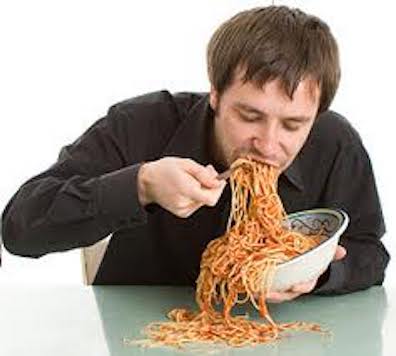In Telemachus Haines leaves the tower first,
followed by Mulligan, who calls behind him, “Come out, Kinch.
You have eaten all we left, I suppose.” The remark implies
that Stephen has hungrily finished off the leavings on
Mulligan’s and Haines’ plates, and that doing so is somehow
ill-mannered. This exchange does not reflect well on the
moneyed and supercilious Mulligan, but it also seems to show
Joyce reflecting on the dismal figure he cut when he was 22.
In Scylla and Charybdis Stephen recalls Mulligan’s
complaint verbatim, thinking in Shakespearean idiom of the
offense that was laid to his charge: “Come on, Kinch. You
have eaten all we left. Ay. I will serve you your orts and
offals.” Eating food bought by Mulligan (a fact
established here, long after the breakfast) contributes to
Stephen's feeling that he has been usurped, a Telemachus who eats
in his own palace only by the sufferance of the suitors. But
his resentment
It is hard to fault Stephen for being hungry and polishing
off the scraps that others have left on the table. But the
information about his eating habits seems to flatly contradict
what he says in Eumaeus, when Bloom solicitously
asks, “At what o’clock did you dine?” “Some time yesterday,”
replies Stephen. Bloom is astonished until it occurs to him
that “it was already tomorrow Friday. Ah, you mean it’s after
twelve!” Stephen corrects himself: “The day before
yesterday.” Unless both men understand “dine” to refer
to something more substantial than breakfast, it seems that
Stephen is exaggerating his fast, possibly to solicit
sympathy, and certainly to construct a heroic personal
mythology of self-abnegation. Joyce represents in Stephen his
own self-pitying hunger
during his bohemian days in Paris, with Bloom occupying the
role played in life by Mary Murray Joyce.
